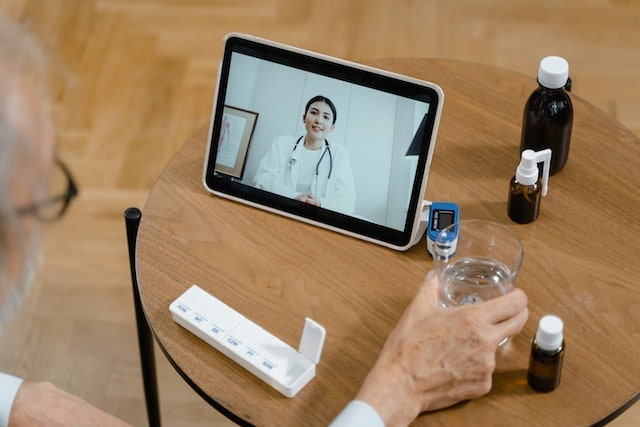Interviews
Medical school interviews, behavioral assessments during healthcare hiring, evaluations in clinical trials, and patient history discussions are fundamental elements within the medical domain, exerting substantial influence over the trajectory of healthcare practitioners’ careers and the quality of patient care.
Virtual Interviews in Medical Admissions

It became prevalent in medical school admissions in recent years due to technological advancements and the COVID-19 pandemic. This shift enhances candidate accessibility and allows admissions committees to assess digital communication skills, empathy, and adaptability. It expands the pool of potential students by considering their ability to excel in telemedicine and virtual patient interactions, not just academic accomplishments.
Behavioral Interviews in Healthcare Hiring
Behavioral examinations are pivotal in healthcare hiring, as they evaluate candidates’ past experiences to predict their future performance in high-pressure healthcare settings. They identify crucial qualities like empathy, teamwork, and adaptability, ensuring that healthcare professionals excel medically and as compassionate caregivers, upholding the highest patient service standards.
The Role of Interviews in Clinical Trials
In medical research, assessments are vital for recruiting and evaluating clinical trial participants. They provide essential data on medical history, symptoms, and treatment responses, enabling protocol refinement, participant safety, and advancing treatment development. These interviews are adaptable and indispensable tools in the pursuit of medical breakthroughs.
Interviewing Patients for Medical History
Effective patient care begins with thoroughly understanding the patient’s medical history. Healthcare providers rely on interactions with patients to gather essential information about their past illnesses, medications, allergies, and family medical history. This data forms the foundation for accurate diagnosis and treatment planning. Beyond the medical aspects, patient interactions also involve active listening and empathy, fostering trust between patients and healthcare providers.
Effective communication during these interactions can improve health outcomes and patient satisfaction.
In the medical field, interviews are not merely conversations but powerful tools for selecting the next generation of healthcare professionals, building effective healthcare teams, advancing medical research, and delivering quality patient care. Virtual interviews have become integral to medical school admissions as technology continues to shape our interactions. Behavioral examinations ensure that healthcare professionals possess the right skills and compassion. These are crucial in healthcare. Research discussions develop life-saving treatments, while patient assessments personalize medicine. They are essential in healthcare and shape the future of medicine by adding a human touch to science.